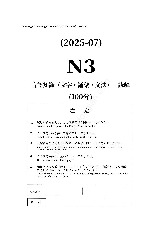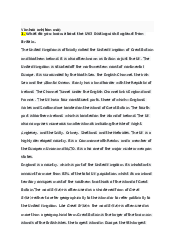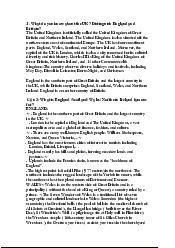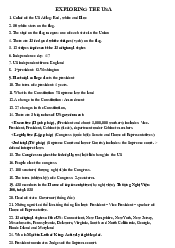




Preview text:
Văn Hóa Anh
1. What do you know about the UK? Distinguish England from Britain
The United Kingdom is officially called the United Kingdom of Great Britain and Northern
Ireland and is also often know as Britain or just the UK. The United Kingdom is founded in
1801 and situated off the north-western coast of continental Europe. The UK has four
constituent parts: Englands, Wales, Scotland, and Northern Ireland. The UK is a highly
developed country. It is a Commonwealth Realm, and a member of the European Union and
NATO. It is also one of the major nuclear weapon states. The current king of the UK is
Charles III and the current prime minister is Rishi Sunak.
Distinguish England from Britain
Britain is the island containing England, Scotland and Wales.
England is located in the Southern part of the island of Great britain, which is part of the country of the United Kingdom
2. What is England/Scotland/Wales/Northern Ireland famous for? England:
England is famous for many things: long history with Castle and Historic houses; Royal
family; education institutes. It has some of the most famous universities of the world like
Oxford, Cambridge and London universities. In addition, it is impossible not to mention
well-known characters and places like David Beckham, Fish and Chips, Big Ben, Red Buses,
black cabs, Oasis, Blur, the Beatles, London and tea. Scotland:
Scotland's most famous lake is Loch Ness with LochNess monster which is said to live in the
deep water. Scotland is also famous for its clans, kilts, medieval castles, as well as poetry and
songs of Robert Bums. Theatre lovers from around the world come to Edinburgh for its
famous theatre festival, Edinburgh festival. Famous people of Scotland include: Waiter Scott,
Robert Louis Stevenson, Arthur Conan Doyle, David Hume and the actor Sean Connery. Wales:
Wales is renowned for having the most castles per person in Europe and its tallest mountain,
Mount Snowdon. Wales is known for its great actors such as Richard Burton, Sir Anthony
Hopkins, Catherine Zeta Jones; Laura Ashley famous fashion creator; Sir George Everest -
famous traveler and explorer, the highest peak in the world is named after him. Northern Ireland:
Northern Ireland is famous for landmarks such as the Cliffs of Moher, Croagh Patricks, and
Blarney Castle. Dublin is the largest and most important city in Ireland and is famous for
many things including its Temple Bar area, Trinity College, and the Guinness Storehouse. It
is famous for literature, folklore, as well as art, and music. Some of the most famous writers
in the world include James Joyce and W.B. Yeats.
3. Why has the UK Government encouraged immigrant communities to
speak their own languages and English?
In the UK, there are a lot of immigrants so the government encourages them to speak English
as well as their own languages to foster intercultural understanding and preserving the
national identity. Furthermore, the children of immigrants are often taught their own
languages in school, and there are special newspapers, magazines, and radio and television
programmes for the Asian community. Additionally, English is now an international
language and is used as a means of communication between people from many countries; if
immigrants want to find a job to increase their income, they must be fluent in English.
4. Why is standard English with an RP accent the usual model for people
leaving British English as a foreign language? What justification can you find for this practice?
Received Pronunciation, often called RP, is the accent that is widely accepted as the standard
accent for both native and foreign speakers of British English. Because the development of
radio promoted standard English and Received Pronunciation (RP), which became known as
BBC English- Many older British people still consider this to be 'correct' English that with
respect to spelling, grammar, pronunciation, and vocabulary is substantially uniform without
regional differences and it is used in both spoken and writing, formal or informal. In fact,
Bristol residents use standard English (standard Southern English), which they pronounce
clearly and accurately and all countries must learn English of this region.
5. Give your comment on the British Parliament.
The UK Parliament is one of the oldest representative assemblies in the world, with its
origins in the 13th century. During the 14th century two distinct Houses of Parliament began
to emerge, with the "Commons" sitting apart from the "Upper House", The British
Parliament consisted of 3 parts: the elected House of Commons, the appointed House of Lord
and the Sovereign... The most important part is the House of Commons. The main function
of Parliament is to pass law, provide (by voting for taxation) the means of carrying on the
work of government, scrutinize government policy and administration, including proposals
for expenditure and debate the major issues of the day.
6. Why does the British Prime Minister continue to "advise" and
"request" the King/Queen, when everyone knows that he/she is really
telling the Monarchy what to do?
Theoretically, the Monarch has important roles such as appointing important office holders
including The Prime Ministers, governors, diplomats, judges... The Queen also receives her
officials and ministers in the UK and abroad..., present at treaty signings.
However, in fact, The Prime Minister is the head of government and is ultimately responsible
for the policy and decisions of the government. The Prime Minister presides over the Cabinet
and is responsible for allocating functions among ministers, has regular meetings with the
Queen to inform her of the general business of the Government and recommends a number
of appointments to the Queen (including senior clergy).
7. What are the outstanding features of the English education system?
The English education system is divided into public and private. Citizens of the country, as
well as those who have a residence permit, can study for free but parents may spend money
on educating their children privately if they want to. Foreign students, in most cases, must
pay for their studies in England. The basic structure of education in Britain consists of
several levels: elementary school, high school (around the age of eleven or twelve), and
university. Each of the steps, in turn, is divided into levels corresponding to the age and
categories of the school curriculum: preschoolers, elementary
school, high school, university. Full-time education is compulsory up to the middle teenage
years (4-16 years old); the academic year begins at the end of summer.
8. Give your comment on the English education system (kinds of school,
school levels, curriculum qualifications, management, etc)
State school: state school are classified into three broad categories (Community schools,
Foundation Schools, Voluntary Schools)
- Independent schools: In England the ISI inspects schools in the ISC every six years, using
criteria approved by Ofsted and the Department for Education and Skills (DfES)
.-Primary schools: all children must attend school no later than the start of the term after the
15th birthday. Primary schools consist mainly of infant schools for children aged 5 to 7,
junior schools for those aged 7 to 11, or combined junior and infant schools for both age groups.
-Secondary schools: secondary pupils attended comprehensive schools. There general take
pupils without reference to ability or aptitude, providing a wide range of secondary education
for all or most of the children in a district.
- Every school will have specially curriculum -Organization of compulsory school years
-Organization of compulsory school years
- Administration and management: State schools in England are maintained by LEAS.
Universities and higher education colleges are legally independent corporate institutions with
individual governing bodies. A number of government departments are responsible for
education policy: The DfES in England.
9. What do the three branches of the UK government do
The UK's government has three basic types of power: executive, judicial and legislative:
-Legislative power is the power to make new laws or remove old ones. This power is held by
Parliament, which is made up of the House of Lords and the House of Commons. The
Scottish Parliament, the Welsh Assembly, and the Northern Irish Assembly also has
legislative powers; however, they do not have as much authority as Parliament.
-Executive power - the power to implement and enforce laws is controlled by the British
government, which works on behalf of the Queen, as well as the devolved governments of
Scotland and Wales and the Northern Ireland Executive.
Judiciary power, which is the power to prosecute those who break the law, is kept
independent of the legislature and the executive. The highest court in the UK is the
Supreme Court of the United Kingdom.
10. How many types of family patterns are there in the UK? Which is your favourite? Why?
There are 7 types of family patterns: Nuclear family; Extended family; Single-parent family;
Range-parents range- child; Homosexual families; Childless family; Planet family.
My favorite is extended family, family with parents, 2 or more children with grandparents
and relatives. This type of family is very close, with grandparents and relatives helping to
look after and take care of the children when their parents are away, busy, the children do not
feel lonely, all members share the housework with each other. Giving ideas to each other,
grandparents pass on customs and habits to their children.
11. Explain the functions of the House of Commons.
The House of Commons has many important functions. These include scrutiny, legislation,
representation, debate and recruitment of government. Legislation is the main function, as it
is the job of the House of Commons to introduce and pass bills. Parliament collectively
makes law, but it is mainly the government that introduces and passes legislation.
The second function is scrutiny, where the government must explain and defend its actions to the House of Commons.
The final function of the House of Commons is recruitment of government. The Prime
Minister picks the cabinet, and these ministers are mainly chosen from the House of Commons.
12. In what ways are British pubs different from typical cafes and bars in your country?
Firstly, it can be easy to find the differences between Vietnamese bars and British pubs in
decoration. Most bars in Vietnam are designed and decorated following a modern, new, and convenient style.
Secondly, their way of serving is also different. In Vietnam, all of the bars always have
waiters and waitresses, and customers are served at a table. This shows the bar's welcoming
and hospitality. However, British pubs have no waiter service. If you want something, you
have to go and ask for it at the bar. To British people, it makes them feel comfortable and
relaxed, so it is more informal. In addition, the calling-name style of Vietnamese bars and
British pubs are also different.
13. Do you think that the British welfare state is successful in giving help to everyone who needs it?
UK welfare salaried people pay taxes, annual personal income and people use that money to
pay benefits for unemployed, benefits for them, pregnant mothers, children, people who do
not control the family economy.
This plan is successfully implemented because they are workers of the developed country, so
they help the needy in a very easy way. Despite the amount of subsidy, they still live enough unlike other poor countries.
14. What are the functions of the UK press? What are the national newspapers like?
The press has an increasingly important function and role in social life. These are the
functions of information, the function of thought, the function of enlightenment-
entertainment, the function of organization-management, supervision and social criticism,
and the function of economy-service. The press was born to meet and satisfy the information
and communication needs of people and society.
The press is not only an important information and communication channel providing
information and knowledge, but also a forum for exchanging and sharing skills and rich
experiences in order to improve people's intellectual levels and meet the needs of the people's Sustainable Development.
The nation newspaper: Daily mirror; The Sunday Times; The Mail on Sunday; Sunday Mirror; Financial Times
15. In your opinion, what bank holiday is the most popular with British
people? Describe it in detail. Is it similar to a certain holiday or festival in your country?
There are many bank holidays in the UK such as Christmas Day, Boxing Day, Good Friday
but the most popular bank holiday with the British people is New Year's Day. New Year's
Eve is on 31 December, the last day before New Year begins. In many places, people go to
parties, bars or restaurants with friends in the evening. Sometimes, they meet outside in a big
square. Just before midnight, people look at the clock and together they count the last ten
seconds before the New Year begins: "Ten, nine, eight...”. At midnight, they stand in a circle,
join hands and sing an old song called "Auld Lang Syne". Many people drink a glass of
champagne, light some fireworks or dance until the sun comes up.
In Vietnam, there is also New Year's Day but the most important holiday for Vietnamese is
the Lunar New Year. This is a special occasion for Vietnamese to gather for a union.
Vietnamese often pack Chung cake, display the five-fruit tray, clean the house, collect
graves, visit relatives, and participate in traditional sports activities.



